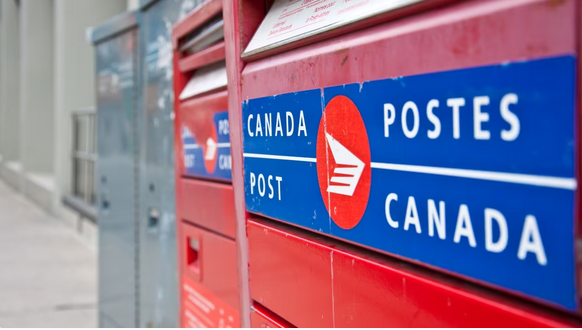In retaliation for EV tariffs, Chinese government launches anti-dumping investigation into Canadian canola imports
Two years after China lifted a ban on Canadian canola imports, Beijing said Tuesday it would launch an anti-dumping investigation into the crop, following Ottawa’s imposition of tariffs on Chinese electric vehicles.
The original canola ban was introduced in March 2019, months after Beijing detained Canadians Michael Spavor and Michael Kovrig, in retaliation for the arrest in Vancouver of Huawei executive Meng Wanzhou on a U.S. extradition warrant.
The Canola Council of Canada estimated the suspension of licences for two of the country’s biggest exporters, Viterra and Richardson International, could have cost the industry as much as $2.35-billion between March 2019 and August 2020.
Last year, Canada exported $5-billion worth of canola products to China, used for food and biofuel.
In a statement Tuesday, the Chinese commerce ministry said exports of Canadian canola – also known as rapeseed – had increased significantly, rising 170 per cent year-on-year amid a “continuous decline in prices,” which it said was evidence of potential dumping behaviour, whereby imports cost less than the price on the domestic market, harming local producers.
“Affected by unfair competition from the Canadian side, China’s domestic rapeseed-related industries continue to lose money,” it said.
Ottawa gave a similar justification for its imposition of 100-per-cent tariffs on Chinese-made electric vehicles – following an identical move by the U.S. – which ministers said were necessary to protect the burgeoning Canadian EV market.
The Chinese statement made clear Tuesday’s move was in retaliation for the EV tariffs, referring to them as “discriminatory unilateral restrictive measures” and reiterating a promise to take the case to the World Trade Organization. Canada also sought remedy from the WTO over the 2019 canola ban, but it was lifted before the international organization weighed in.
Chinese-Canadian relations have been in a deep freeze since the arrest of Ms. Meng. Even after she and the Two Michaels were released in September 2021, there was little improvement in bilateral ties due to ongoing controversies in Canada over alleged Chinese interference in the country’s political system.
Last year, Ottawa expelled Chinese diplomat Zhao Wei – and Beijing responded in kind – after The Globe reported China had targeted Conservative foreign affairs critic Michael Chong and his relatives in Hong Kong in an attempt to gain leverage over the MP.
There did seem to be some progress in recent months, with Foreign Minister Melanie Joly making her first visit to China in July, in hopes of reopening diplomatic channels.
Ms. Joly said Canada was “committed to engaging pragmatically with a wide range of countries to advance our national interests and uphold our values.”
Following her visit, Chinese Foreign Minister Wang Yi said he and Ms. Joly had discussed the “difficulties and twists and turns” in the Sino-Canada relationship, adding Beijing also wanted to “inject momentum into the restoration” of normal ties.
That progress seems to have been dashed however by the EV tariffs, which China’s embassy to Canada denounced as “trade protectionism” and a “politically-motivated decision” that goes against “Canada’s traditional image as a global champion for free trade and climate change mitigation.”
With files from Ann Hui and Alexandra Li
This article was first reported by The Globe and Mail













